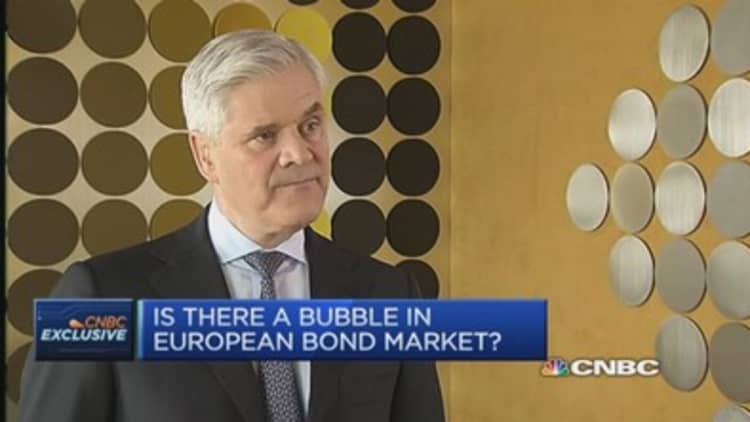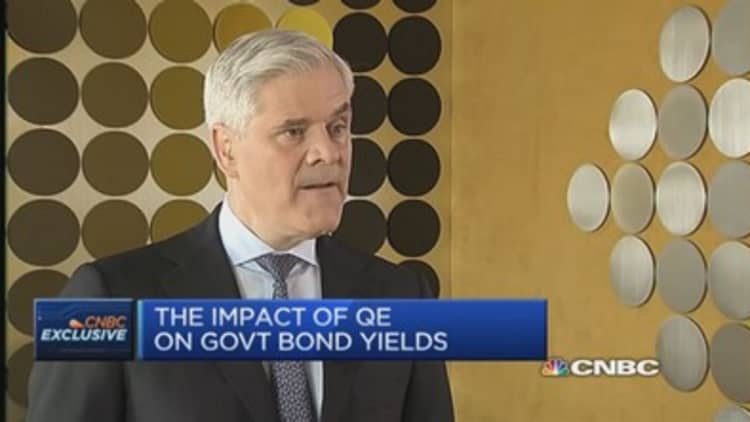A leading member of Germany's Bundesbank has backed U.S. calls for "shadow banking", the unregulated sector that provides credit on a global scale, to be subject to stress-testing.
"Stress testing, as has been suggested, may be a good idea," Andreas Dombret, a member of the Bundesbank's executive board responsible for banking supervision, told CNBC on Tuesday.
"But if we were to go by this route, it should be directed to the link between the shadow banking sector and the banks. So it is not about introducing regulation, if there is no systemic link between this sector and the banks. That is what we really have to care about."

Dombret was commenting after Fed Vice Chairman Stanley Fischer suggested tougher rules for shadow banking on Monday, as well as stress tests to assess the risk the sector could pose to global finance in the event of a slump.
Read MoreFischer offers framework for regulating shadow banks
Shadow banking is huge on a global scale, handled $75 trillion in funds in 2013, up $5 trillion on the start of the year, according to the Financial Stability Board. In some countries, such as the U.S., the sector is viewed as likely to be larger than the supervised banking industry.

Stress tests for conventional banking activities were adopted by the U.S. and Europe after the 2007-08 financial crisis to gauge big banks' ability to manage risk and plan for a potential economic shock.
On Tuesday, Dombret, who has worked for major international banks like Deutsche and JPMorgan, said there might be a need to regulate shadowing banking, if it proved to be a "systemic risk" to the financial sector.
"We need to monitor very closely what is happening in this sector, and the relationship between these so-called shadow banks—I would rather call them 'non-bank' banks—and the banking sector, and should there be a systemic risk, and should there be a close link, we may even have to go beyond monitoring and we have to go towards may be also regulation."

